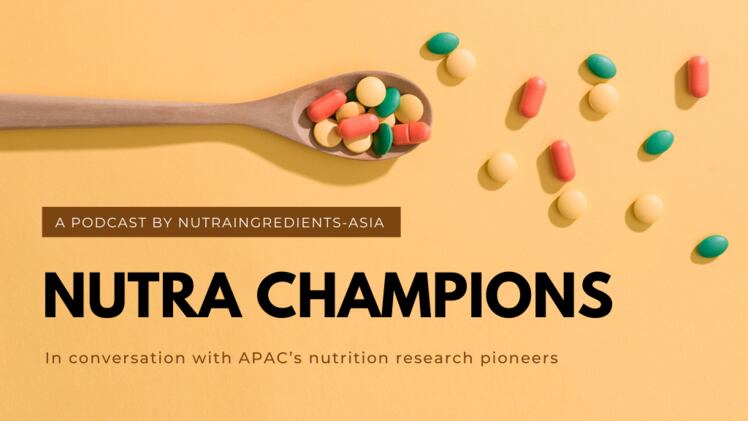Marlena Kruger, Professor in nutritional physiology and Associate Dean of Higher Degree Research at New Zealand’s Massey University, told us the above in the latest episode of Nutrachampion podcast.

Specialising in the research of dairy foods, bioactives, lipids and their effects on bone health, Prof Kruger had led a number of clinical trials on well-known consumer products, such as Fonterra’s Anlene milk supplementation and its effects on grip strength, bone density, and vitamin D levels in women.
More recently, she has been involved in a number of research related to New Zealand’s High Value Nutrition National Science Challenge, where she analysed the potential health benefits of local foods, such as Pāmu deer milk and greenshell mussel on areas from bone to joint, and muscle health.
Just last month, the High Value Nutrition National Science Challenge announced that the Pāmu deer milk research has yielded positive results on muscle mass among women aged 65 and above.
Pāmu deer milk is sourced from the South Island of New Zealand. It is naturally higher in protein and calcium concentration than cow’s milk. It also contains potassium, phosphorus, magnesium, vitamin A, C, and some of the B vitamins.
The product studied is branded Pāmu and manufactured by New Zealand state-owned Landcorp Farming.
The firm has been selling Pāmu deer milk in Vietnam and South Korea as children’s products, but since it contains a high amount of protein, the firm has decided to explore its potential as a supplement for the elderly, which was how the clinical trial came about.
Speaking to NutraIngredients-Asia on the Nutrachampion podcast, Prof Kruger revealed findings of the 11-week study comparing Pāmu deer milk and an over-the-counter milk formula.
Most notably, women from the intervention group and had a BMI less than 25, reported a significant improvement in hand grip than those from the control group.
Women with BMI more than 25 and taking the deer milk also saw an improvement in their muscle mass.
“This was very encouraging, which means that over time, a supplement such as deer milk could improve muscle maintenance and maybe muscle strength in combination with physical activities,” Prof Kruger said.
Initially working on calcium and muscle metabolism, Prof Kruger – who was originally from South Africa, started to research in bone health after she completed her post-doctoral studies in The University of Texas at Austin.
“After the postdoc, I planned to return to South Africa. And then I was approached by a company which doesn't exist anymore and were selling fatty acids, fish oils, evening primrose Oil and those and they were very interested in calcium metabolism and the role that these long chain fatty acids might play.
“I had a grant from them to return to South Africa. We started to focus on bone because earlier work showed that when we supplement with the long chain fatty acids, the fatty acids get built into the membrane.
“What I found with in-vitro work is that the calcium pump, which is responsible for helping calcium absorption, the activity significantly increased in the presence of long chain fatty acids. And so, we thought that supplementation with long chain fatty acids, especially omega-3 may increase calcium absorption and then of course, that will impact on bone. So that's when I started was bone research.”
Moving forward, Prof Kruger revealed that she planned to study the impact of vegan and vegetarian diets on bone health in children.
“I have applied for funding to do a study on vegan and vegetarian children. Study showed that vegan and vegetarian kids have improved cardiovascular health, however, children eating more protein have better bones
“The purpose of the study is not to criticise that people change the children's diet, but just to make sure that what they are taking is healthy and can support growth and development.”
Listen to the podcast to find out more.


